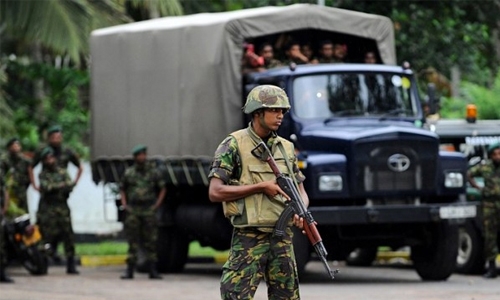Sri Lanka probes suicide note 'confession' to murder
Colombo : Sri Lankan police say they are investigating the death of a retired soldier found hanged Friday with a note claiming responsibility for the 2009 murder of a prominent anti-establishment newspaper editor.
The body of the former military intelligence officer was found at his home on Friday with what appeared to be a suicide note in his pocket claiming responsibility for the killing, a senior police official said.
His death comes a month after Sri Lankan authorities reopened the investigation into the January 2009 killing of Lasantha Wickrematunga, a fierce critic of the island's former strongman president Mahinda Rajapakse.
"We are investigating if the suicide note is genuine," a senior officer said asking not to be named as he was not authorised to speak to reporters.
"We are also investigating the contents of the note."
A serving military intelligence officer is already in custody in connection with Wickrematunga's death, which sparked an international outcry and shone a spotlight on violence against the media.
Last month, the authorities exhumed Wickrematunga's body to conduct a fresh autopsy after fears that forensic evidence may have been tampered with or deliberately falsified to mislead the investigation.
Wickrematunga was the chief editor of the Sunday Leader newspaper which had accused Rajapakse's then powerful defence secretary brother Gotabhaya of kickbacks in arms purchases, including an aircraft deal.
He was killed a few days before he was due to give evidence before a judge looking into corruption allegations against Gotabhaya Rajapakse, who has denied any involvement.
The case was reopened last year after a former minister in Rajapakse's government accused Gotabhaya of running a death squad and ordering the hit against the editor.
Police as well as rights groups have said there was strong evidence the military played a role in his killing.
Wickrematunga started the Sunday Leader with his brother Lal Wickrematunga 22 years ago, building it into one of the most vocal anti-establishment newspapers in the country.
The newspaper was highly critical of rights abuses by troops against ethnic minority Tamils during the island's long-running separatist conflict that ended in 2009.
Some 17 journalists and media employees were killed in Sri Lanka under Rajapakse's regime.
Related Posts

